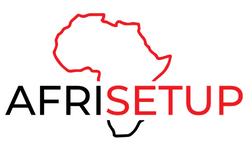

Is your company looking to expand its operations in Rwanda? If so, you may be familiar with the complex compliance and administrative procedures involved. Thankfully, we have a solution that will not require you to register a company in Rwanda.
We act as a third-party partner that manages all employment-related tasks on behalf of your company. This saves you time and effort and mitigates the risks associated with non-compliance. In this video, we answer all these questions and more, providing expert insights on Rwanda employer of record services. Hit play and get all the details!
Rwanda Employment Law
Under Rwanda’s Labor Code, workers are primarily categorized into formal and informal sector employees. Informal sector employees are those who work for individuals or businesses that are not officially registered with the Rwanda Development Board (RDB) or any public authority.
Despite this distinction, the Labor Code of Rwanda ensures that both categories of workers are equally protected under the law. Key employment rights—such as access to fair wages, minimum wage regulations, paid leave, occupational health and safety, social security, and protection from discrimination and forced labor—apply uniformly to all employees. Additionally, all workers have the right to join trade unions or employers’ associations, whether in the formal or informal sector.
Employment in Rwanda
As of Q2 2024, Rwanda’s labor market continues to evolve, with increased economic activity across various sectors. The labor force participation rate rose to 62.5%, up from 59.5% in 2023, reflecting a growing number of individuals engaging in the workforce. The employment-to-population ratio also improved, reaching 52.0%, though gender and age disparities remain. When hiring employees, an EOR ensures that employers adhere to legal hiring processes, including fair recruitment practices, employment contracts, and registration with relevant labor authorities. Remember, Work permits are required for foreign employees.
Employment Contracts in Rwanda
Compliance requirements in Rwanda for employers
To successfully expand your business into Rwanda requires a thorough understanding of the compliance requirements set forth by the Rwandan government. Failure to comply with these requirements can result in severe penalties and legal consequences. This section will explore some key compliance requirements employers must adhere to in Rwanda.
1. Minimum Wage in Rwanda
Rwanda does not have an officially updated minimum wage. The last legally referenced rate—RWF 100—comes from labor laws dating back to 1972–1980 and is widely considered outdated. This figure falls far below modern living standards and international benchmarks set by the International Labor Organization (ILO).
In reality, wages in Rwanda are typically set by industry norms, employer policies, and collective agreements, especially in urban and skilled sectors, where pay is significantly higher than the outdated legal rate.
Although there have been calls to revise the minimum wage to reflect current economic conditions and living costs, no formal changes have been implemented. Employers hiring in Rwanda should focus on offering competitive salaries aligned with market trends to ensure compliance, employee satisfaction, and talent retention.
2. Bonuses & Performance Pay
While not mandatory, some employers provide performance-based bonuses and incentives.
3. Social Security Contributions
Employers and employees must contribute to the Rwanda Social Security Board, which includes pension, medical insurance, maternity, and other social security benefits.
Social Security
| Contribution Type | Employer Share | Employee Share |
| Pension Scheme | 3% | 2% |
| Medical Insurance | 3.75% | 3.75% |
| Maternity Leave Fund | 0.6% | 0% |
- Car allowance – Monetary support for personal or official transportation.
- Housing allowance – Assistance with rent or housing costs.
- Phone allowance – Coverage of mobile or telecommunication expenses.
- Loans – Employer-provided financial assistance, often with favorable terms.
- Standard Workweek: 45 hours (typically 7.5 hours per day, 6 days a week)
- Overtime Pay: This is set in the employment contract. Compensation is usually higher for overtime work.
- First 3 months: fully paid (with a valid medical certificate)
- Following 3 months: unpaid leave
- January 1: New Year’s Day
- January 2: Yennayer
- February 1: Heroes’ Day
- April 7: Good Friday & Genocide Memorial Day
- April 10: Easter Monday
- April 22: Eid Ul Fit
- May 1: Workers’ Day
- June 29: Eid El-Haj
- July 1: Independence Day
- July 4: Liberation Day
- August 4: Umuganura Day
- August 15: Assumption Day
- December 25: Christmas Day
- December 26: Boxing Day
Rwanda Income Tax
• Taxable employment income in Rwanda
Any income received by an employee, including cash, wages, salary, overtime, leave pay or payment in lieu of leave, commissions, gratuities, bonuses, or any other amount benefiting the employee, will be subject to taxation according to the law. The final payroll will be issued monthly.
• Income Exempt from Taxation in Rwanda
Under the previous tax law, only amounts below FRW 30,000 were exempt from personal income tax. However, the Income Tax Law (ITL) 2022 now exempts income derived from savings in collective investment schemes and shares held by Rwandan employees within a company from income tax.
• Income tax obligations for taxpayers:
- Resident taxpayers are liable for income tax from domestic and foreign sources during the tax period.
- Nonresident taxpayers are only liable for income tax on income sourced within Rwanda.
Work Permit in Rwanda
Rwanda offers a structured work permit system for foreign workers, categorized into several classes depending on the nature of work and level of expertise. Employers are required to provide necessary documentation, including proof of employment and qualifications. The processing time usually takes 7–60 days, depending on the visa type and permit class. As Rwanda employer of record service providers, we help you apply for a work permit for your employees online from the comfort of your home country.
Employee Rights in Rwanda
Termination of employment contract in Rwanda
Rwandan labor laws outline specific procedures employers must follow when terminating an employee’s contract. These procedures include providing notice periods, conducting disciplinary hearings if necessary, and ensuring fair treatment of the employee. Failure to comply with these procedures can result in legal disputes and potential damage
1. Probation Period
The standard probation period is up to 3 months, and depending on performance, it can be extended once for another 3 months.
2. Termination Notice Period
The notice about the reason for termination must be in writing.
Termination
| Length of Service | Minimum Notice Period |
| Less than 1 year | 15 days |
| More than 1 year | 1 month |
3. Gross Misconduct
Employment can be terminated immediately (with a 48-hour notice) for serious breaches of conduct as defined by the Minister in charge of labor.
4. Terminal Benefits
Depending on the years of service, employees are entitled to severance pay ranging from 2x to 7x the average monthly salary, payable within 7 working days.
5. Mutual Consent:
An employment contract may be terminated if both the employer and employee agree to do so.
Afrisetup Employer of Record Services in Rwanda
1. Payroll processing:
We take responsibility for processing payroll for your employees in Rwanda. This includes calculating wages, deducting taxes and other withholdings, and ensuring timely and accurate payments. Our staff handles all aspects of payroll, saving you time and effort.
2. Tax compliance:
We handle all tax-related matters, including calculating and withholding taxes, making tax payments, and handling all tax filings and submissions. Our team has a deep understanding of the Rwandan tax system to ensure that your company remains compliant.
3. Employee benefits administration:
We simplify benefits administration by handling all aspects, including enrollment, claims processing, and compliance with local regulations. We ensure that your employees receive the benefits they are entitled to.
4. Legal compliance:
Compliance with local labor laws and regulations is crucial for any business operating in Rwanda. We ensure that your company remains compliant by handling employment contracts, termination procedures, and other legal requirements. We have a deep understanding of the local laws and regulations to ensure that your business operates within the boundaries of the law.
5. Risk management:
We help mitigate risks by providing guidance and expertise in navigating the complexities of compliance. We stay up-to-date with any changes in the laws and regulations and ensure that your business remains on the right side of the law.
6. Administrative support:
Managing administrative tasks associated with employment can be time-consuming. We provide administrative support by handling employee onboarding, offboarding, record-keeping, and other administrative tasks. This allows you to focus on your core business objectives and saves you valuable time and resources.
6 Benefits of using our Rwanda Employer of Record
Expanding your business into Rwanda can be an exciting opportunity for growth and expansion. However, it also comes with unique challenges, particularly regarding compliance and administration. This is where an EOR can provide invaluable support and assistance.
Here are some benefits of partnering with us:
1. Expertise in local labor laws and regulations
Rwanda’s labor laws are detailed and ever-evolving. Our employer of record services in Rwanda ensure your business complies with essential regulations — from drafting employment contracts to managing leave entitlements and lawful terminations. With our in-depth legal knowledge, we help protect your business from compliance risks and regulatory penalties.
2. Streamlined Payroll and Tax Compliance
Payroll in Rwanda requires precise calculations, timely deductions, and accurate tax submissions. Our team simplifies the payroll process, ensuring your employees are paid correctly and all tax obligations are met. This eliminates errors, saves time, and guarantees compliance with Rwanda Revenue Authority standards.
3. Efficient Benefits Administration
Retaining top talent in Rwanda requires competitive and compliant benefits packages. Our EOR solution manages everything from health insurance to social security contributions, ensuring your employees are well-cared for without overloading your HR team.
4. Accelerated Market Entry
With our employer of record Rwanda, there’s no need to establish a local legal entity to begin hiring. This means you can enter the Rwandan market quickly, test business potential, or scale operations with minimal investment and risk.
5. Mitigation of compliance risks
Labor disputes, audits, and penalties can damage your reputation and finances. Our experts help you avoid these issues by ensuring every aspect of your employment practices adheres to Rwandan labor law, giving you peace of mind and operational confidence.
6. Enhanced Focus on Core Business Goals
By outsourcing HR, compliance, and payroll functions to our Rwanda EOR, your internal team can concentrate on strategic priorities like business development, revenue growth, and operational excellence, without administrative distractions.
Frequently Asked Questions (FAQs)
A Professional Employer Organization (PEO) co-employs your staff, while an Employer of Record Rwanda becomes the full legal employer. An EOR is best for companies without a legal entity in Rwanda.
An Employer of Record Rwanda legally employs workers on your behalf, handling compliance, payroll, and benefits. A staffing agency provides temporary workers but does not manage employment responsibilities.
Yes. Our Rwanda Employer of Record services allow you to hire and pay employees legally without opening a local branch or subsidiary.
Employers must contribute to the Rwanda Social Security Board (RSSB), pay income tax withholdings (PAYE), and adhere to other statutory obligations. We handle all of this on your behalf.
Yes. All employment contracts facilitated by our EOR service comply fully with Rwandan labor law
Utilizing an EOR simplifies the hiring process, ensures compliance with local regulations, reduces costs, and allows you to concentrate on strategic business functions.
An EOR in Rwanda is legally responsible for employment contracts, payroll processing, tax withholdings, filing labor law requirements, and providing employee benefits.
Yes, an EOR can assist in hiring local talent by managing the recruitment process and ensuring compliance with Rwandan labor laws.
The main risks include potential misunderstandings of local laws and regulations. However, partnering with a reputable EOR, due to their regional expertise, significantly minimizes these risks.
Yes! An Employer of Record service in Rwanda enables companies to hire remote employees while ensuring compliance with local laws
Mandatory employee benefits in Rwanda include:
Social Security Contributions (RSSB)
Paid annual leave (at least 18 days)
Maternity & paternity leave
Health insurance
Partner With Us
Employing in Rwanda can be a seamless experience with the right partner. By opting for Rwanda Employer of Record services, you can efficiently navigate the legal landscape, attract top talent, and focus on what matters most—growing your business.
Whether you’re a multinational corporation or a startup looking to expand, an EOR can provide the necessary support for success in the Rwandan market. If you’re ready to explore how Afrisetup can benefit your operations, contact us today to get started.
